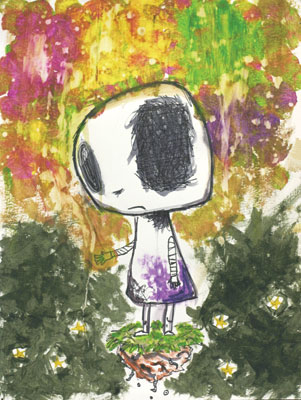All Nonfiction
- Bullying
- Books
- Academic
- Author Interviews
- Celebrity interviews
- College Articles
- College Essays
- Educator of the Year
- Heroes
- Interviews
- Memoir
- Personal Experience
- Sports
- Travel & Culture
All Opinions
- Bullying
- Current Events / Politics
- Discrimination
- Drugs / Alcohol / Smoking
- Entertainment / Celebrities
- Environment
- Love / Relationships
- Movies / Music / TV
- Pop Culture / Trends
- School / College
- Social Issues / Civics
- Spirituality / Religion
- Sports / Hobbies
All Hot Topics
- Bullying
- Community Service
- Environment
- Health
- Letters to the Editor
- Pride & Prejudice
- What Matters
- Back
Summer Guide
- Program Links
- Program Reviews
- Back
College Guide
- College Links
- College Reviews
- College Essays
- College Articles
- Back
Disability Harassment
A few weeks ago, in Ohio, an autistic boy was told that he was nominated for the ALS Ice Bucket Challenge, and he gladly agreed. A video taken on his phone shows the boy standing outside a garage door in his underwear, and another boy standing on the roof and holding a bucket. However, there was not water in the bucket, but instead a disgusting mix of feces, urine, spit, cigarette butts, and trash. The culprits then proceeded to upload the video of this horrific incident on Instagram.
This is not the first time mentally disabled children have been the victims of bullying and appalling crimes like this. The Department of Education says that mentally disabled children are three to five times more likely to be bullied than other children. A British study done in 2007 also shows that 82% of mentally disabled children have been bullied- and this number is only increasing. Mentally disabled children face death threats and violence because bullies find them easier to target.
Another example of disability harassment is when a fourth grader named Gabriella Matson (her name changed to protect the family’s privacy) with Attention Deficit Hyperactivity Disorder (ADHD) received a death threat. The bully had written, “I am going to kill Gabriella Matson,” on the side of the playground’s slide. It was later found that the same person had left a rude note in her mailbox earlier. Gabriella was traumatized and became depressed. In the article describing this incident, it explains that children whose disabilities aren’t visible are more likely to be targets of bullying.
The big question is: what are people doing about this? Section 504 of the Rehabilitation Act of 1973 and Title II of the Americans with Disabilities act of 1990 require schools to address disability harassment. However, studies show that 25% of teachers don’t believe bullying is a problem. Most of the support to stop bullying is coming from parents and other outsiders - not from the schools. While the government has taken action to prosecute those who harass others, especially the mentally disabled, the problem still lies in the fact that schools aren’t doing enough to find the bullies.
While bullying should be addressed and stopped no matter who is the victim, I feel that disability bullying is a more pressing issue and that it is not given the attention that it needs. It is typically assumed that bullies would avoid targeting children with mental disorders, but clearly not.
Horrific events like those that occurred to the boy in Ohio and to Gabriella Matson worsen their conditions and add to the difficulties they already face. If we want to stop this from happening, parents cannot be the only ones petitioning to try to keep their children from experiencing trauma; schools and administrators need to prioritize the safety of mentally disabled children, especially those incapable of defending themselves, in order to keep them safe.
Szalavitz, Maia. "Why Autistic Kids Make Easy Targets for School Bullies."
Time. Time, 5 Sept. 2012. Web. 25 Sept. 2014.
GreatSchools Staff. "Invisible targets." Great Schools. Great Schools, Web.
25 Sept. 2014.
Canter, Andrea, Ph.D., and Andrea Cohn. "Bullying: Facts for Schools and
Parents." NASP Resources. National Association of School Psychologists,
Web. 25 Sept. 2014.

Similar Articles
JOIN THE DISCUSSION
This article has 4 comments.

I was inspired to write this article when I heard about the young boy in Ohio that was a victim of this horrifying Ice Bucket Challenge "prank". This was terrible in itself- but when I heard that the boy was autistic, it made me feel even worse; someone who was already facing several difficulties now had to endure even more. We know that bullying is a problem, but this caused me to think about how bullying is an even bigger problem for those who are mentally disabled.